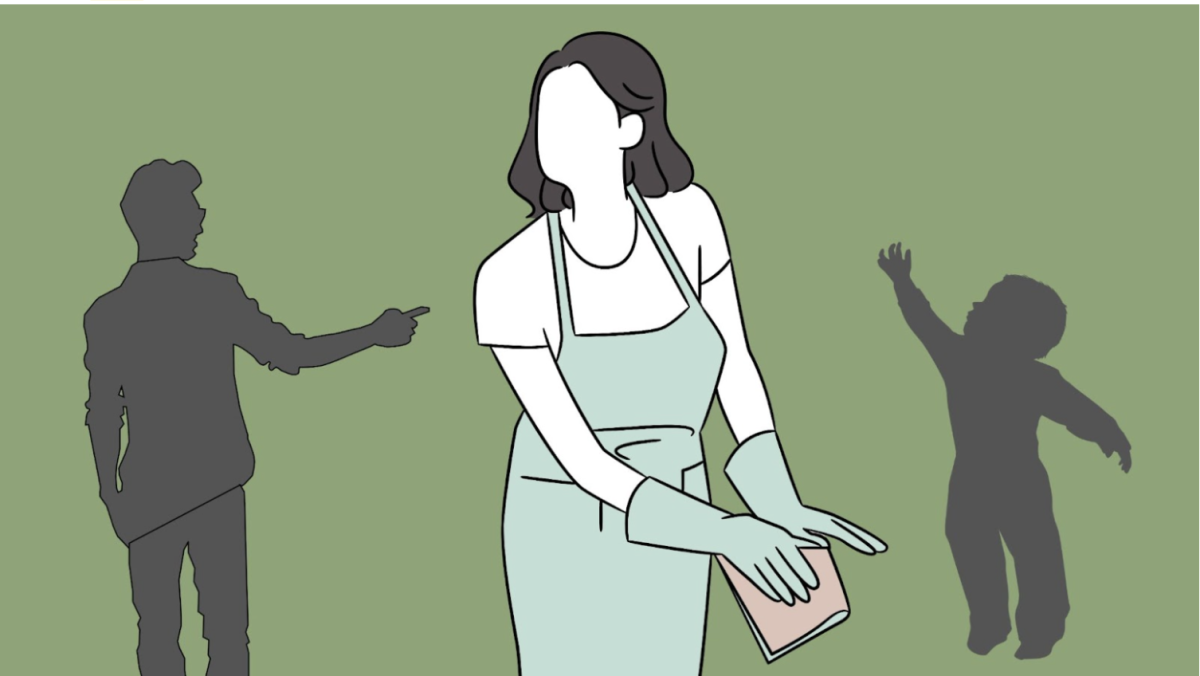“I’m looking for a Tradwife, sourdough, homestead, wants kids.” As people go on social media, this audio fills up their feed. Derived from the idea of taking on the behavior of traditional wives, the internet has been taken over by “Tradwives.” The term originally emerged in 2018 and rose to prominence in the 2020s, advocating the lifestyle as a feminine ideal. Tradwives often post videos of the benefits of having multiple children, cooking for the family, and staying home while their husband provides for the family financially.
Recently, the trend rose to mainstream popularity due to influencers such as Nara Smith, whose content consists of her cooking everything from scratch after her husband or children tell her that they crave something, and Estee Williams, who expressed that homemakers should have their houses tidy before their husbands get home.
However, concerns that this trend promotes patriarchal gender roles rather than advocates for women who choose to become housewives have been voiced across the internet as well. Many influencers suggest that wives should assist their husbands who have ultimate authority over them within the parameters of their home rather than be partners with mutual respect and love for each other. For instance, influencer Victoria Lit expressed that a house was a husband’s castle, thus he was to be treated as a king.
“I think the trend itself is cute,” Claire Park (10), social media enthusiast, said. “But it kind of represents the wrong societal expectations of a woman. I feel like more people are expecting it [from women].”
In one extreme case, influencer “Ballerina Farm” Hannah Neelman revealed that she only took one epidural throughout her eight births because her husband was at work at the time of her labor. Internet users were aghast by how Neelman was embarrassed to even admit taking an epidural, calling her husband’s actions “insane” and “domestic violence.” This highlights how the Tradwife lifestyle requires women to sacrifice their needs and well-being for her children and husband, rather than make decisions based on who she is as an individual.
Numerous Tradwife content also suggests that the idea of a “girl boss”—women who pursue careers and gain executive positions at their workplace—is false propaganda. Therefore, it ignites the concern that content suggesting that it is unnatural for a woman to work rather than depend on their husbands to provide for the family will extrapolate stereotypical gender roles. Especially for women for whom work is necessary to support herself and her family, this idea ultimately garners discrimination.
“I think it would’ve been great for my kids if I was able to be a stay-at-home mom when they were younger,” Angela Campbell, teacher and mother, said. “But also for the woman’s sake, she should have the freedom to choose what she wants and not be pressured by society. It’s hard enough [for women].”
The rise of Tradwives ultimately highlights one of the key issues in our society: forcing individuals to fit into the mold of set gender roles. We tend to forget that individuals should be respected and praised for their unique contributions to society, whether it be as a worker or a homemaker.


